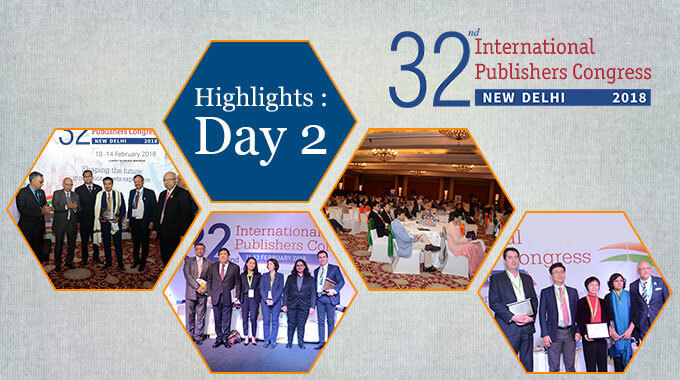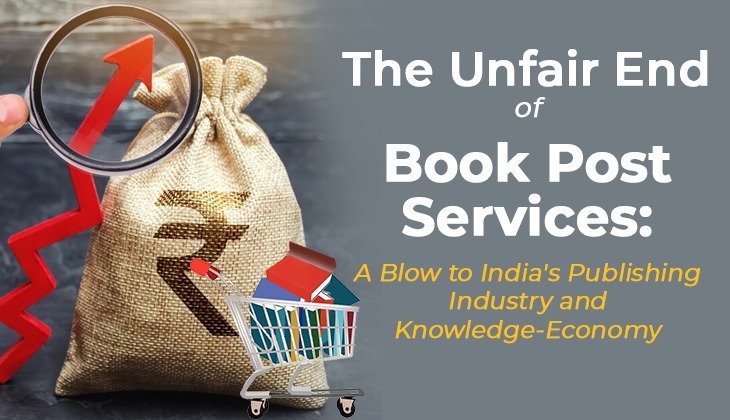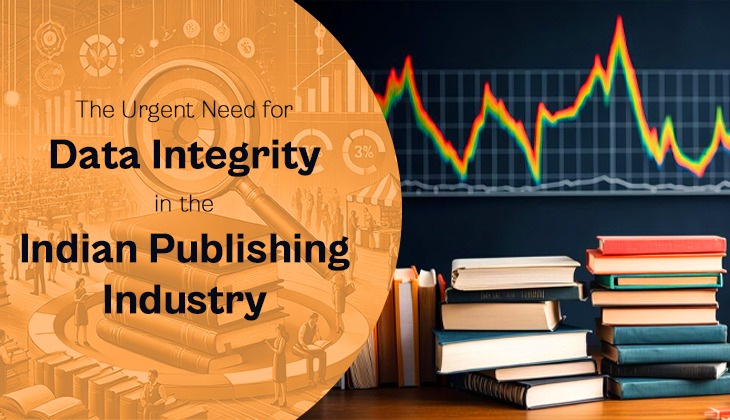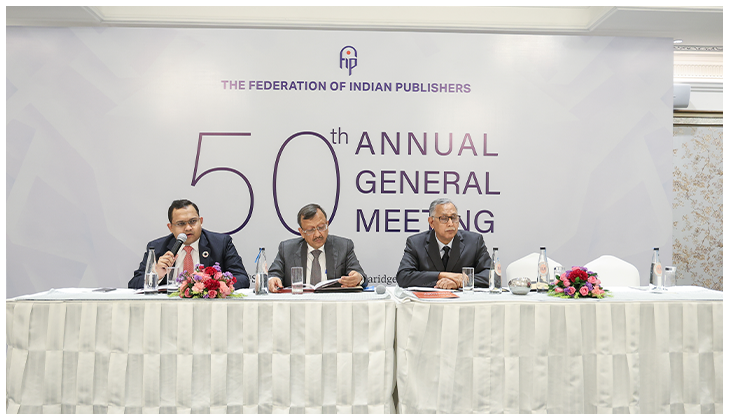Much like the first day that was packed with amazing events and activities for all, Day 2 of the International Publishers Congress too witnessed a lot of fun and excitement.
Social Responsibility of Publishers
The first session was chaired by Hugo Setzer with panelists Dipendra Manocha, Henrique Mota, Baldeo Bhai Sharma and Dr. Sadhana Rout.
The discussion brought into light a vision to end book famine as a social responsibility of publishers. Availability of quality content to readers was being stressed upon. As the discussion moved forward, Henrique Mota voiced that while it is a publisher’s right to publish everything, it is also his duty to refuse to publish anything that contradicts with the portrayal of truth. He also stated that a publisher may choose not to publish anything having a negative toll on him or his publishing house.
Responding to Copyright Challenges
This session was chaired by Paul Doda with panelists Pravin Anand, Louise Adler, Lui Simpson and Rajiv Aggarwal.
The role of government policies and policymakers in protection of copyright laws was discussed during this session. The panel members highlighted the key role that publishers play in educating the policymakers regarding the importance of copyright protection. As the challenges were put forward by panel members, the copyright laws of India, Australia etc. were explored. The example of Delhi University case by Pravin Anand was talked about in detail. The session concluded with the need of a collaborative approach by publishers, policymakers and consumers to respond to copyright challenges.
Following the session, a brief speech by Ahmed Al Ameri was addressed to the Congress. During this, he underlined how Sharjah Book Fair changed its identity from being a fair for Arabs to a global publishing event.
The Threat to Self-Censorship in Publishing
This session was chaired by Kristenn Einarsson with panellists Trasvin Jittidecharak and Juergen Boos.
According to Mads Nygaard, times may have changed but the core of publishing remains the same. Kristen Einarsson stated that authors have started self-censorship to avoid personal consequences.
I believe self-censorship is clearly an outcome of being afraid, especially when it comes to publishing politically sensitive content.
Creating the Readers of the Future
The fourth session was chaired by Bodour Al Qasimi and panelists Gita Wolf, Monica Malhotra Kandhari, Karine Pansa and Mingzhu Zhang.
The discussion initiated with how books and publishers play a significant role in shaping young minds, and the importance of building the reading culture. The more we read, the more our brains open up as we get to know a variety of opinions and thoughts that we otherwise wouldn’t have been aware of.
Online Literature
Charlie Redmayne spoke on how it is one of the best times to be a publisher. China’s online literature was also a topic of discussion at this session.
Bringing Publishing Markets Together
Importance of book fairs and events like the International Publishers Congress play a key role in bringing the publishing market under one roof. Networking and connection building are other aspects of how such events help us publishers grow.
The IPA Prix Voltaire Awards ceremony was arranged towards the end of the event, during which, an award was conferred to Gui Minhai. His daughter Angela Gui accepted it on behalf of her father on a Skype call and was overwhelmed. Two Special Awards were also announced for Liu Xiaobo, a Chinese literary critic, poet, human rights activist & Nobel Peace Prize laureate, and Faisal Arefin Dipan, a publisher from Bangladesh.
A small cultural programme concluded the second day of the 32nd International Publishers Congress.



